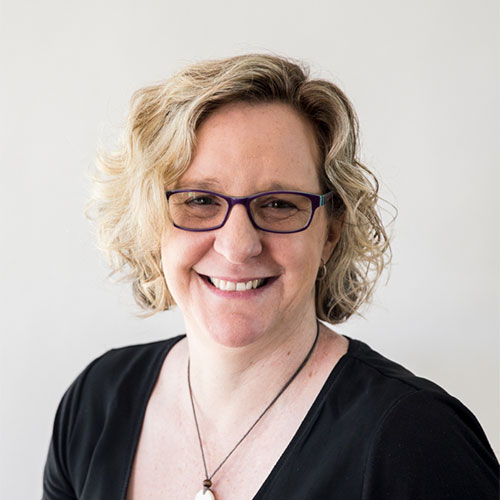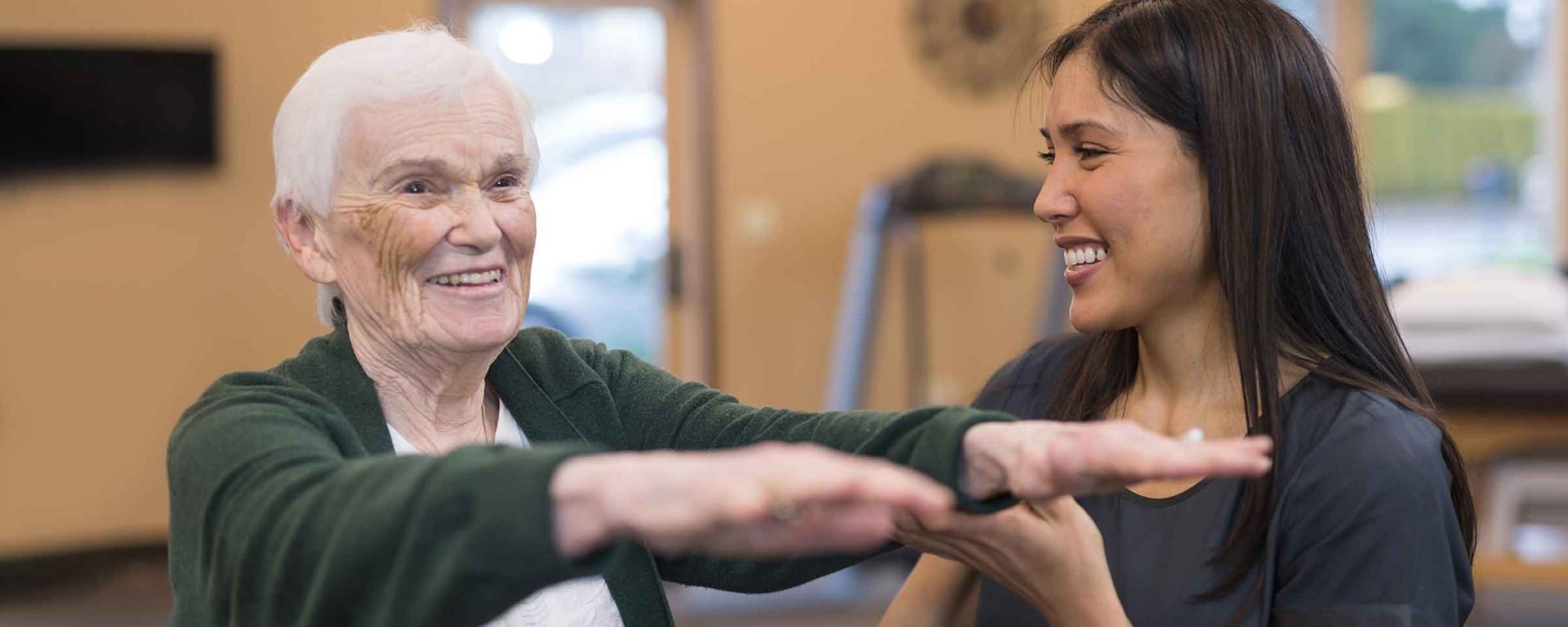Short answer.
Make life better!
Slightly longer answer.
Occupational therapists work with people to live their best lives. To make the most of their days. And to fulfil their goals.
So what exactly does an occupational therapist do?
Wait, hold up; let’s just take a quick detour into who OTs might help.
Who does an occupational therapist work with?
People. All manner of unique, different, fascinating people. You may work with people who have any kind of physical, cognitive, and/or emotional condition that impacts on their ability to do everyday activities. That could be people with cerebral palsy, spinal cord injury, autism, or depression.
The list goes on. You could work with older people, for example. You’ll help them make the most of every day, even if their mental or physical capabilities diminish. You could work with people who have been injured at work, helping the legal system determine the causes and effects of workplace injuries.
As an occupational therapist, you could also choose to work with children. That could mean working with babies and toddlers to meet developmental milestones or helping school-age children to get as much as possible out of school experience. It could involve helping them learn things that they might find that bit harder than other kids, like getting dressed or other activities that require fine motor coordination. Working in child and adolescent occupational therapy can be particularly rewarding as it often involves engaging with whole families, providing practical help to the kids, but also guidance and support to the parents and siblings.
You can work with people who are well too. Occupational therapists work to improve the health and wellbeing of people in the workplace through training and development and one-to-one with people who want to achieve more through coaching and development. They can also work with community groups, local councils, and aid agencies to achieve collective health and wellbeing goals that will improve the lives of everyone.

Karen Hayes, who is a lecturer in occupational therapy at Charles Sturt University, explains that this range of possibilities makes for a very fulfilling career.
“I have been privileged to work with so many interesting people – from children right through to older people, one-to-one and in groups. I’ve been welcomed into people’s homes, workplaces, and lives to offer practical, hands-on problem solving that really makes a difference.”
Okay, now tell me: what do occupational therapists actually do?
First up, you’ll find out about the person, what they are interested in and how the condition they have impacts on their ability to do their everyday activities – how it impacts on them, what they feel and would like to focus on. This means lots of conversation with the person as well their families, significant others, and lots of collaborating with other healthcare professionals.
Next, you’ll likely establish a plan with the person which will meet their needs and work towards their goals.
Then you will work with the person to put that plan in place. That could involve everything from helping them get to grips with special equipment such as a wheelchair to organising their home or workspace to make it work better for them. From demonstrating exercises to help build strength or relieve pain, to helping people get to grips with daily tasks – whether that’s assisting an elderly person with a computer so they can connect with their relatives, or helping a child who might not feel safe in groups enjoy play in their own way.
As Karen Hayes points out, at every step you are making a difference to someone’s life.
“Occupational therapists are expert problem solvers. We look at the whole person, what they are trying to achieve, and the people and things around them. So we can find ways to help people do what they want or need to do. We come in when people are stuck and find a way to help them move forward. It is a very rewarding job to have.”
Where do occupational therapists work?
Occupational therapists obviously do a lot of work in healthcare facilities. Hospitals, community health centres, and private practice all offer opportunities. And in these general healthcare settings, you could work with all types of people from across the community.
Other workplaces offer a more specialised focus for your occupational therapy practice. Places like aged care homes and schools are common examples, as well as substance misuse clinics and mental health services.
Often you would travel to see clients in different environments. You could work with one person in their home, another to function best in their workplace and a third in an aged care facility. And that could be in just one day!
A day in the life of an occupational therapist
For Karen Hayes, that sense of ‘no two days are ever the same’ is another reason why she chose a career as an occupational therapist.
“Occupational therapy is all about ‘doing’. Doing the everyday things that bring meaning to your life, keep you healthy, and allow you to achieve your goals. So occupational therapists work everywhere that people are doing things. My career has been diverse. I have worked with children to improve handwriting, with people who have had a stroke to learn to shower, with people who use a wheelchair for mobility.
“I’ve also worked with builders to design ramps and kitchens so people can safely get into their house and cook a meal. I have worked with the local council to improve the access for people with disabilities around the city. I’ve managed a workforce development team to improve the performance of people in the health workforce so they can provide better healthcare to everyone. Now I’m thrilled to be developing the next generation of passionate and committed individuals who have chosen to study occupational therapy at Charles Sturt.”
What difference can an OT make?
A huge difference.
As an occupational therapist you can play a key role in improving someone’s quality of life. You can be responsible for working with them to identify their needs. And for figuring out the best strategies for them to meet their unique challenges. And ultimately living a more fulfilled life as a result.
What occupational therapists do is important. And it’s rewarding.
They change lives.


You must be logged in to post a comment.